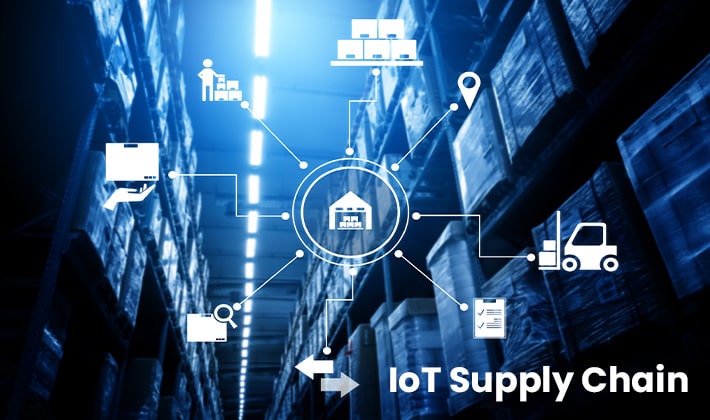The Impact of IoT on Supply Chain Management: Revolutionizing Efficiency
The impact of iot on supply chain management is significant, enhancing efficiency, visibility, and decision-making processes. The integration of iot devices and technologies in supply chain management has revolutionized the way businesses operate.
With the ability to monitor and track shipments in real-time, iot enables companies to gain valuable insights into their supply chain operations. This improved visibility helps businesses identify bottlenecks, anticipate disruptions, and optimize processes for enhanced efficiency. Iot-powered sensors and devices also enable the collection of vast amounts of data, which can be analyzed to make informed decisions and drive continuous improvement in supply chain management.
Overall, iot plays a crucial role in streamlining supply chain operations, reducing costs, and increasing customer satisfaction.

Credit: www.demandsolutionseurope.com
Enhancing Visibility And Tracking
The impact of iot on supply chain management is evident in the enhanced visibility and tracking it provides. Real-time tracking of inventory and shipments allows for better management of stock and ensures timely delivery. Increased transparency in supply chain processes helps to identify bottlenecks and optimize operations.
By streamlining logistics through data analytics, businesses can make informed decisions, reduce costs, and improve customer satisfaction. Iot technology enables the monitoring of various parameters such as temperature, location, and condition of goods in transit, ensuring their quality and integrity.
The availability of real-time data and insights allows supply chain managers to proactively address issues and make adjustments to optimize efficiency. In conclusion, iot plays a crucial role in revolutionizing supply chain management by improving visibility, tracking, and overall operational efficiency.
Improving Inventory Management
The use of iot in supply chain management has had a significant impact on improving inventory management. One of the key benefits is the optimization of inventory levels through the integration of iot sensors. These sensors provide real-time data on stock levels, allowing businesses to prevent stockouts and overstocking.
Furthermore, predictive analytics powered by iot technology enable businesses to anticipate demand and make informed decisions about inventory replenishment. With the automation of inventory replenishment through iot applications, businesses can reduce manual effort and improve efficiency. Overall, the implementation of iot in supply chain management has revolutionized inventory management, enabling businesses to operate more effectively and make data-driven decisions.
Streamlining Operations And Delivery
The impact of iot on supply chain management has revolutionized operations and delivery processes. Automation drives order processing and fulfillment, streamlining the entire system. Iot-enabled systems facilitate efficient routing and scheduling, optimizing resources and eliminating inefficiencies. Last-mile delivery has significantly improved, thanks to iot devices and technologies.
Real-time tracking, route optimization, and delivery notifications enhance the overall customer experience. With iot, supply chain managers can effectively monitor inventory levels, reduce wastage, and ensure timely replenishment. The integration of iot in supply chain management eliminates manual errors and improves accuracy.
From warehouse management to logistics, iot has brought about a transformative change in the industry, enhancing operational efficiency and reducing costs. The power of iot in supply chain management is undeniable, bringing new possibilities and opportunities for businesses to thrive in an increasingly competitive market.
Conclusion
The impact of iot on supply chain management has been transformative. The integration of iot technology has enabled businesses to enhance their efficiency, visibility, and overall performance. With real-time tracking and monitoring, companies have achieved greater control and accuracy in inventory management and logistics.
The ability to collect, analyze, and interpret vast amounts of data has revolutionized decision-making processes, enabling proactive measures to be taken to prevent disruptions, reduce operational costs, and enhance customer satisfaction. Additionally, iot has fostered collaboration and connectivity among different stakeholders in the supply chain, resulting in streamlined operations and improved communication.
As we move forward, it is evident that the adoption of iot in supply chain management will continue to shape and revolutionize the industry, allowing businesses to meet the evolving demands of customers and stay ahead in a competitive market.






